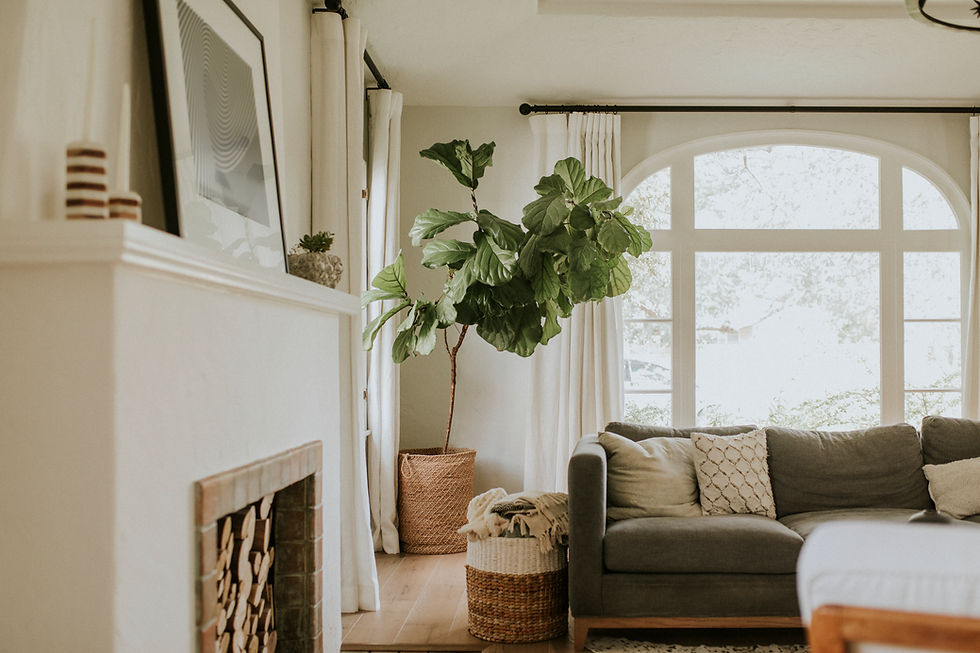How to Create a Cohesive Interior Style — Even Without a Designer
- Ирина Колб

- Jul 1, 2025
- 3 min read
Updated: Jul 8, 2025
Practical Tips from Renovation Experts Who Know What Actually Works
Ever walked into a newly renovated home that still felt... disconnected? Maybe the floors were modern, but the doors looked vintage. Or the lighting felt right, but the tile didn’t. That’s what happens when a home lacks cohesion.
In this article, we’ll break down how to create a cohesive interior style, even if you’re not working with an interior designer. Whether you're replacing doors, laying new floors, or updating finishes, these are the choices that tie your space together — or pull it apart.

What Makes an Interior Style Cohesive?
Cohesion means your space feels intentional. That doesn’t require perfection — just consistency in tone, materials, and flow.
A cohesive interior style is built from:
Materials that speak the same design language
Shapes and lines that repeat across the space
Finishes that match or thoughtfully contrast
Colors and textures that stay in the same family
Transitions that don’t call attention to themselves
Even one mismatched element — like a bright chrome faucet in a warm matte-black kitchen — can disrupt the overall look.
How to Create a Cohesive Interior Style Step by Step
1. Start With the Feeling, Not the Label
Forget “modern,” “Scandinavian,” or “transitional.”Instead, ask yourself:
Do I want my home to feel bright and airy?
Or cozy and grounded?
Clean and minimal? Or textured and layered?
Choosing a feeling gives you more clarity than choosing a style name.
2. Pick Your Dominant Materials and Stick With Them
Once you have a vibe in mind, identify the 2–3 main materials that will dominate:
Style Direction | Typical Materials Used |
Warm & minimal | White oak, light tile, off-white walls |
Modern & bold | Matte black hardware, concrete, dark wood |
Natural & cozy | Raw wood, linen, warm neutrals |
Industrial & edgy | Brick, black metal, exposed elements |
Rule of thumb: Repeat each material at least twice in the room — floor + cabinet, or trim + shelves, etc.
3. Match Your Transitions
Where materials meet — floor to baseboard, tile to paint, wall to door trim — is where many renovations fail visually.
Keep these tips in mind:
Don’t mix gloss with matte unless it’s intentional
Choose door casings and baseboards that feel part of the same system
Grout color matters more than you think (don’t default to bright white)
4. Keep Finishes Consistent
This is a key part of how to create a cohesive interior style — and where most homeowners go wrong.
Example pitfalls:
Mixing warm brass lights with cold chrome handles
Using white trim with cream walls and gray floors
Choosing hardware that doesn’t match door hinges or faucet finish
When in doubt: pick a finish (matte black, brushed nickel, etc.) and stick with it throughout the room.
What We Do at Tools and Hands
As handyman pros, we’re often the last team working on your home — the ones installing everything. But we think ahead:
We ask about your style goals during our walkthrough
We help you pick materials that actually work together
We warn you if something feels out of place before it’s too late
We care about the final look, not just the checklist
We're not decorators — we're detail-focused builders who want your renovation to feel like it belongs together.
Serving Homeowners Who Care About the Details
We serve homeowners in Palatine, Lake Zurich, Barrington, Arlington Heights, Buffalo Grove, Long Grove, and other northern Chicago suburbs, helping them complete renovations that feel cohesive, polished, and truly pulled together.
Want help choosing the right materials and tying it all together? Get a free estimate from Tools and Hands — your local handyman with an eye for style and quality.


